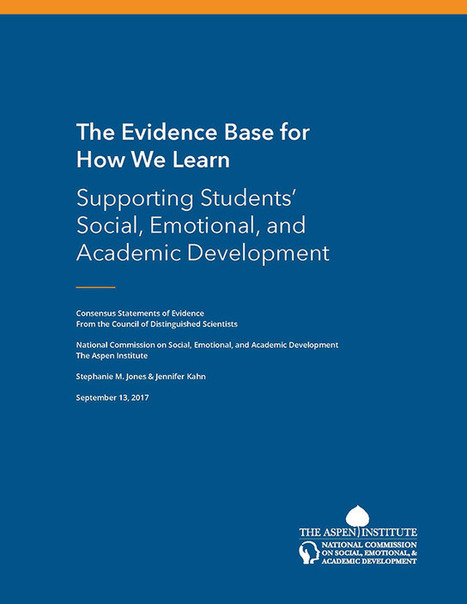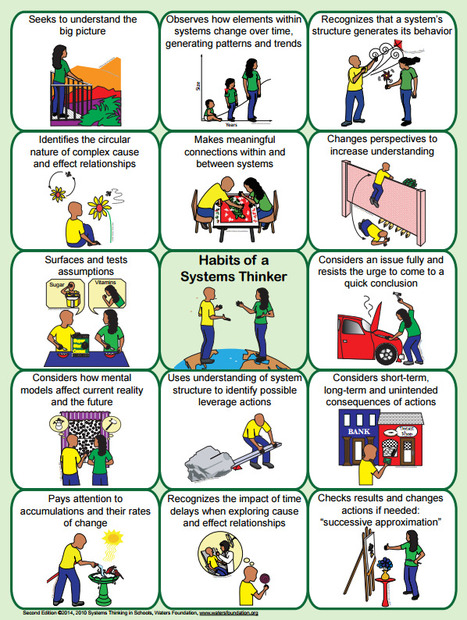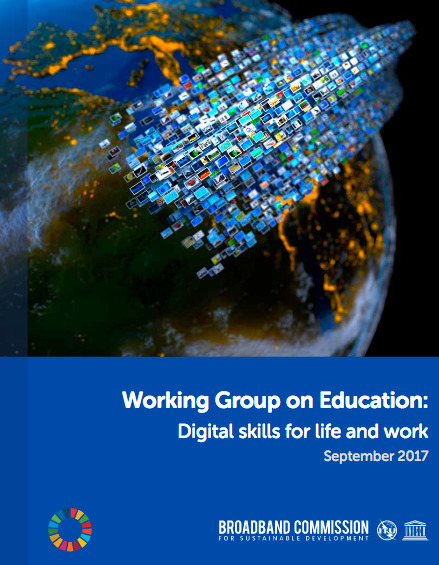"The Evidence Base for How We Learn: Supporting Students’ Social, Emotional, and Academic Development articulates the scientific consensus regarding how people learn. The research brief presents a set of consensus statements—developed and unanimously signed onto by the Commission’s Council of Distinguished Scientists—that affirm the interconnectedness of social, emotional, and academic development as central to the learning process.
"The brief draws from brain science, medicine, economics, psychology, and education research to describe why it is essential to address the social, emotional, and cognitive dimensions of learning; how these dimensions together shape students’ academic and life outcomes; and how these competencies can be taught throughout childhood, adolescence, and beyond. The evidence outlined in this brief moves the nation beyond the debate as to whether schools should attend to students’ social and emotional development, to how schools can integrate social, emotional, and academic development into their daily work."
Learn more / En savoir plus / Mehr erfahren:
http://www.scoop.it/t/21st-century-learning-and-teaching/?&tag=learning
Via Jim Lerman, Miloš Bajčetić, Yashy Tohsaku



 Your new post is loading...
Your new post is loading...
















The Evidence Base for How We Learn: Supporting Students’ Social, Emotional, and Academic Development articulates the scientific consensus regarding how people learn. The research brief presents a set of consensus statements—developed and unanimously signed onto by the Commission’s Council of Distinguished Scientists—that affirm the interconnectedness of social, emotional, and academic development as central to the learning process.
"The brief draws from brain science, medicine, economics, psychology, and education research to describe why it is essential to address the social, emotional, and cognitive dimensions of learning; how these dimensions together shape students’ academic and life outcomes; and how these competencies can be taught throughout childhood, adolescence, and beyond. The evidence outlined in this brief moves the nation beyond the debate as to whether schools should attend to students’ social and emotional development, to how schools can integrate social, emotional, and academic development into their daily work."
Learn more / En savoir plus / Mehr erfahren:
http://www.scoop.it/t/21st-century-learning-and-teaching/?&tag=learning